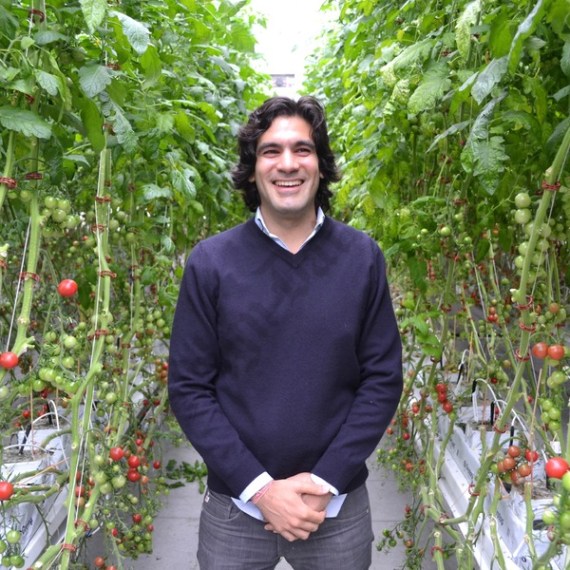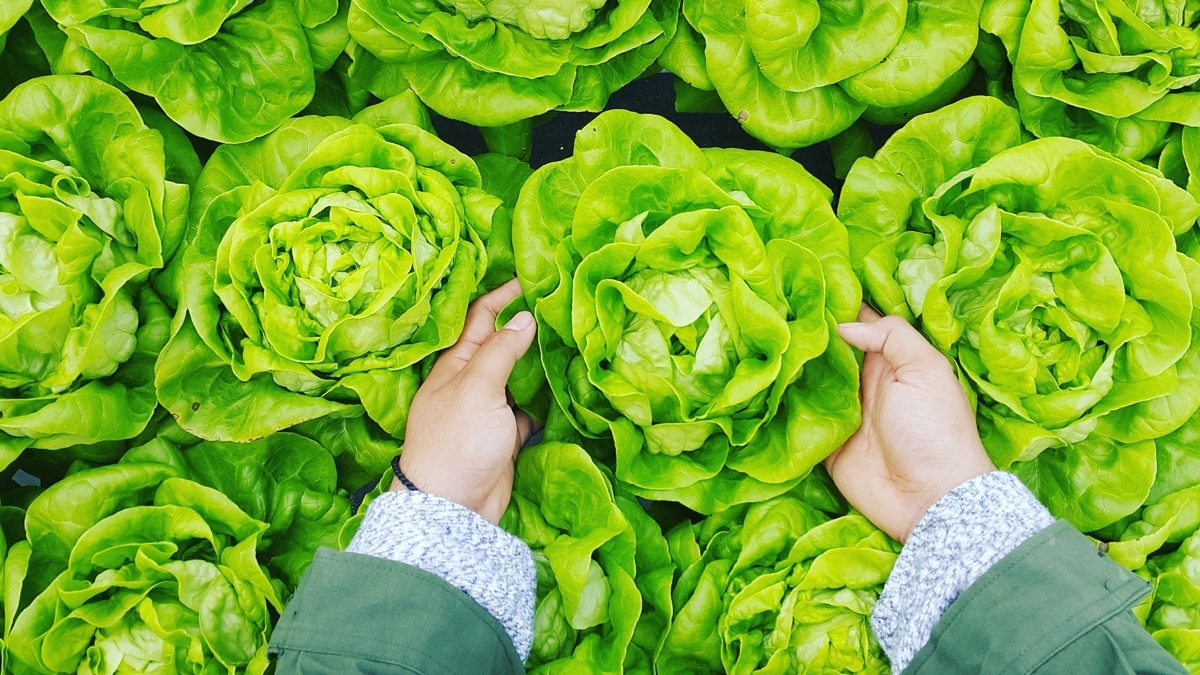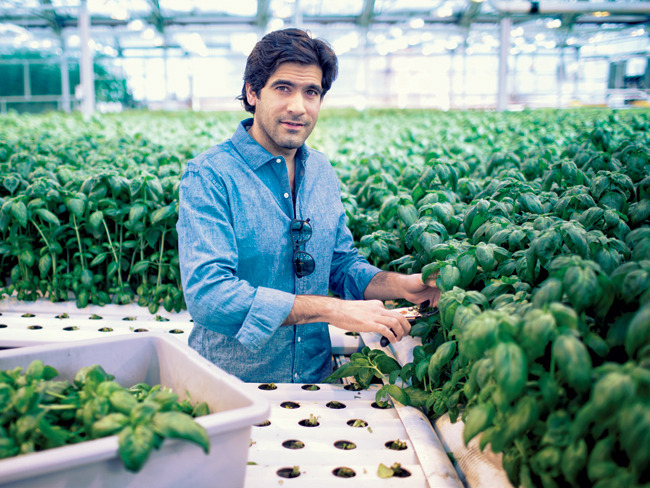They may not be dressed as bats, but the team behind Gotham Greens are quite tech-savvy and commonly found flitting about rooftops – much like the masked D.C Comics vigilante. What’s more, the Brooklyn-built startup is here to save the day by championing the need for greater food security, with sustainable rooftop urban farming.
Not only does Gotham Greens farm premium, pesticide-free and 100% clean-energy powered produce, but it has also recently cultivated $29M in growth equity funding. Existing backer, Silverman Group, led this Series C funding round. Also, a sizeable investment was made by Creadev, a global investment company. This brings the total equity funding to $45M.
The Origin Story
Co-founded by Viraj Puri and Eric Hayley, Gotham Greens is a worldwide pioneer in the field of urban agriculture. Apart from being a comic-book reference, “Gotham” is an old nickname for New York, the start-up’s home base. In fact, the indoor farming startup was founded in 2009 to satisfy the year-round need for fresh greens of retail, restaurant, and institutional customers of the Empire State.
Puri, a seasoned entrepreneur and poster-boy of sustainable living solutions, became aware of a renaissance in people’s eating habits; some 10 years ago. He noticed that people were eating cleaner and farmers markets were beginning to thrive, as did the local and artisanal food movement. Puri also wished to avoid a bleak Malthusian catastrophe, of a rapidly growing population struggling to create more products with fewer resources.
The ‘aha!’ moment came to him during his last internship that involved a small greenhouse project. That’s when he decided to set up New York’s first solar-powered, hydroponic rooftop farm, based on proprietary cultivation and growing techniques.

Armed with the latest technologies and innovations, Puri built Gotham Greens out of a vision to deliver “locally-grown and highest quality culinary ingredients” at competitive prices. This first-of-its-kind hydroponic (method of growing plants in a water-based, nutrient-rich solution) greenhouse also represented the advent of a new-age, viable, commercial-scale urban farming enterprise.
Gotham Greens went on to build their first commercial-scale rooftop greenhouse in 2011, atop an erstwhile bowling alley in the Greenpoint neighborhood of Brooklyn. Their second greenhouse was set up, in 2014, on the rooftop of a Whole Foods Market, Brooklyn. Designed, built, owned and operated by Gotham Greens, these state of the art facilities use natural sunlight to nourish the crops.
While growing crops, at scale, in the city means higher expenditure capital (for things like utilities and payroll), Gotham Greens cuts down on transportation and logistics costs. Also, rooftops, which are unusually non-monetised space for the property owner, end up being cheaper to rent out for farming purposes in the heart of the city.
Thus, the produce is also more competitively priced than the output of vertical farms, structured around big data and AI. As a matter of fact, it is comparable to products that are shipped into the cities by truck.
Also, Puri has been quoted saying that Gotham Green’s greenhouses ‘yield 20-30 times more product per acre than field production.’ ‘Our 170,000 square feet of greenhouses across the four facilities produce yields equivalent to over 100 acres of conventional field farming,’ he added.
Today, Gotham Green’s climate-controlled urban rooftop greenhouses are located across four facilities in New York City and Chicago. Products are harvested just a few hours before they reach the shelves and kitchens of retailers such as Whole Foods and New York restaurants like Gramercy Tavern and ABC Kitchen.
The company employs about 150 employees across its New York and Chicago facilities. The team has been specially picked based on their knowledge of controlled environment agriculture (CEA), hydroponics, business development, marketing and sales, and environmental design.
Gotham Greens has secured several prestigious awards and recognitions, such as World’s Largest Rooftop Farm, Chicago, IL 2015 and 50 Coolest Businesses in America, Business Insider, 2015.
Urban Farming Crusaders with a Heart
 Even with their drive to grow as a business, Gotham Greens looks at urban farming as a ‘driver for economic and community development’. It creates jobs, uses city space efficiently and reaps fresh produce in a responsible manner. They also work with nonprofits such as food rescue organizations and donate seedlings to local environmental education programs.
Even with their drive to grow as a business, Gotham Greens looks at urban farming as a ‘driver for economic and community development’. It creates jobs, uses city space efficiently and reaps fresh produce in a responsible manner. They also work with nonprofits such as food rescue organizations and donate seedlings to local environmental education programs.
These existing (and future) greenhouse locations are selected basis their proximity to the markets. Buyers also tend to be within the city limits. Selling locally shortens the supply chain to reduce carbon footprint, food-borne pathogens and risk of produce spoilage/waste while increasing sales and customer satisfaction.
According to Puri, proximity to a population dense urban marketplace makes it viable for Gotham Greens to harvest each morning and deliver locally. The startup’s local-only focus also helps its retail partners formulate unique, local produce programs.
Market’s Salad Days Ahead
Greenhouse continues to be one of the highest profiled contemporary urban agriculture projects, across the globe. Reports suggest that greenhouse crop sales are over $1.3Bin Canada and $3Bin the United States.
In such market conditions, the large influx of financing received by Gotham Greens can be considered as strong validation of their ‘proven farm unit economics, efficient utilization of capital, growth rate, and best in class brand’.
The bulk of their recent $29M equity financing will be directed towards adding new greenhouse facilities, conducting research and development, expanding distribution and hiring new team members. They are committed to keeping the business “hyper-local”.
Owing to the high demand experienced by Gotham Greens, an additional 500,000 square feet is already under development in five U.S states. In fact, by early 2019, Gotham Greens expects to start operations in Baltimore.
Eventually, Gotham Greens will need to evolve its business to offer urban farming systems suited to different nations – in terms of affordability, weather conditions and access to resources such as water. There is also a real opportunity in profitably growing staples such as rice and wheat, apart from just the green leafy herbs and vegetables.
Subscribe to our newsletter



